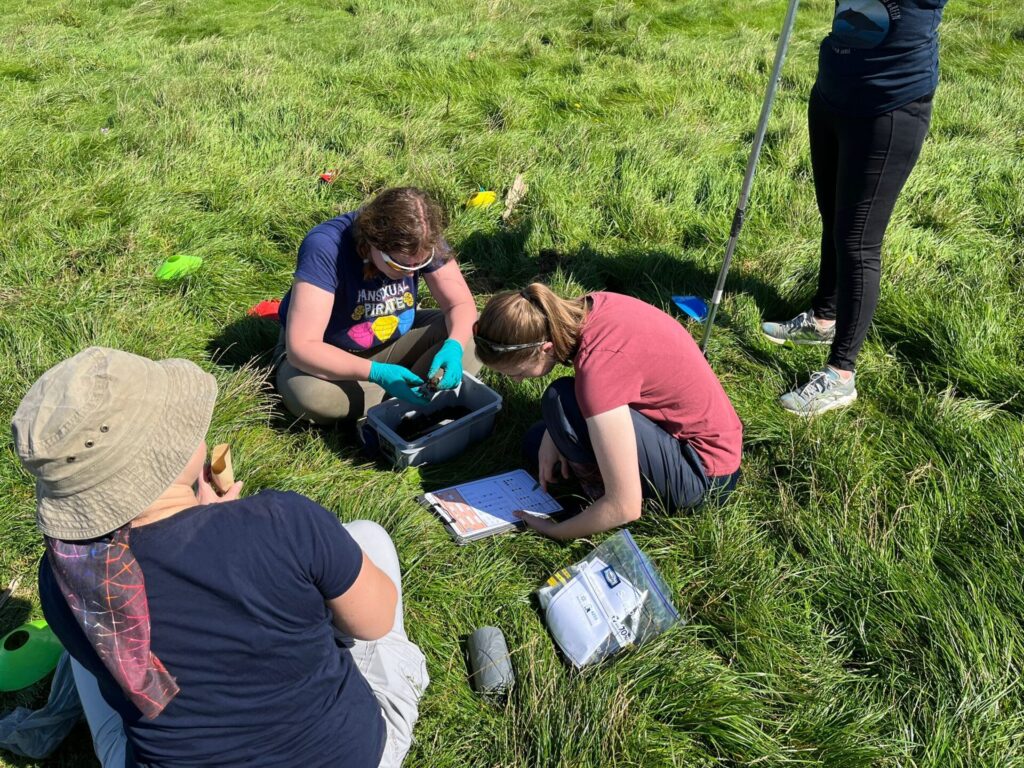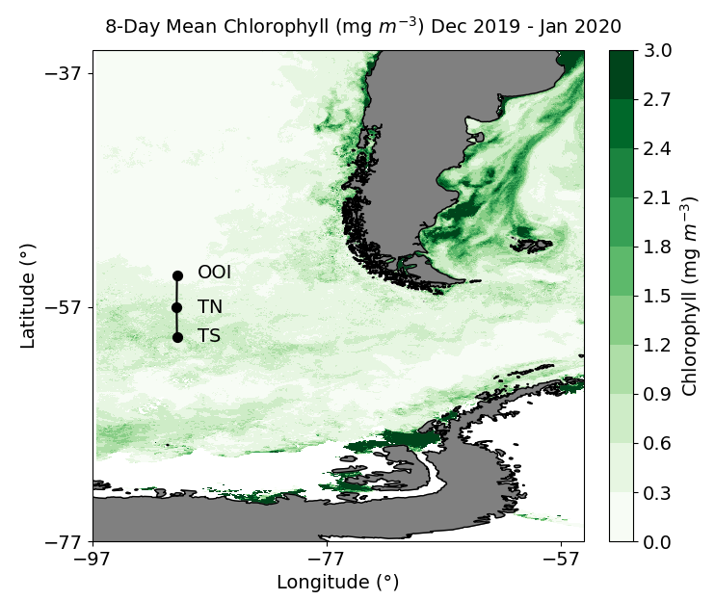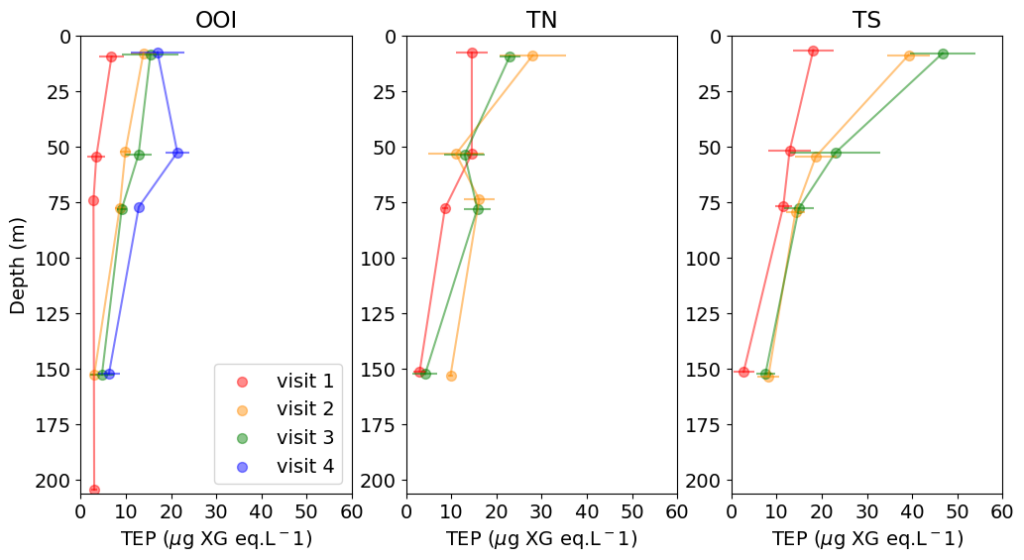
What are you studying?
I am currently studying for a BSc in Environmental Science at The Open University, as a distance-learning student. I will be starting my fourth and final year in October 2023.
Tell us a bit about the project you have been working on this summer?
My project investigated how particulate organic carbon (POC) in the Southern Ocean sinks through the water to add to ocean carbon storage, via phytoplankton photosynthesis. This involved analysing in-situ data on particles produced by the phytoplankton that promote carbon sinking to the deep ocean. I also used chlorophyll data from the ESA Ocean Colour satellite dataset, to help answer my main question of how the whole process was affected by nutrient availability in the water. The findings will hopefully have implications for researchers involved in the CUSTARD project, who are investigating seasonal changes in Southern Ocean carbon storage.
What new skills have you learned while doing this internship?
During the internship, my IT and data analysis skills definitely improved, such as learning about and using Linux operating systems, and coding using a Python environment – something which I had never used before. I have developed my presentation skills, by presenting to other placement students and research scientists at the National Oceanography Centre (NOC) where I was based, which also taught me how to target a talk to different audiences with different knowledge bases. The soft skills I have learned and used involved problem-solving, time management and building work relationships, by communicating with my supervisors and speaking to other people in the office. I also developed a good working day routine to make the most of my time, which is some helpful personal insight I will use in future.


How have you found working with your research team?
From the outset and throughout the internship, my supervisors Alice and Chelsey were incredibly welcoming and attentive to any questions I had (which, for the first week, were mainly about how to find my way around the NOC building!). They offered me many opportunities to attend talks, speak to people, get involved with data collection and public engagement, and generally gain a huge amount of insight into the academic industry, for which I am very grateful. I massively appreciated their consistent time and support, particularly when they were both busy with their own work, and it was inspiring to work with and learn from them.
What has been the highlight of the internship for you?
The highlight was definitely my fifth week, where I presented to the other REP interns in Edinburgh and Leeds online, and then to 20 or so researchers at NOC later that week. It was fantastic to see what the other interns had been working on, and grow in confidence when presenting to researchers who are experts in their fields.
How has doing this internship changed your plans or thoughts about your future career?
The internship has reaffirmed to me that I want to pursue a career in earth science research, as I found the whole project process very interesting. It has also highlighted the potential challenges that arise with it, which I am glad to be aware of. I definitely plan to conduct a PhD research project, and will likely study for a masters in oceanography or similar first.



